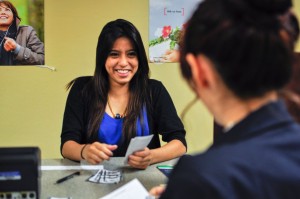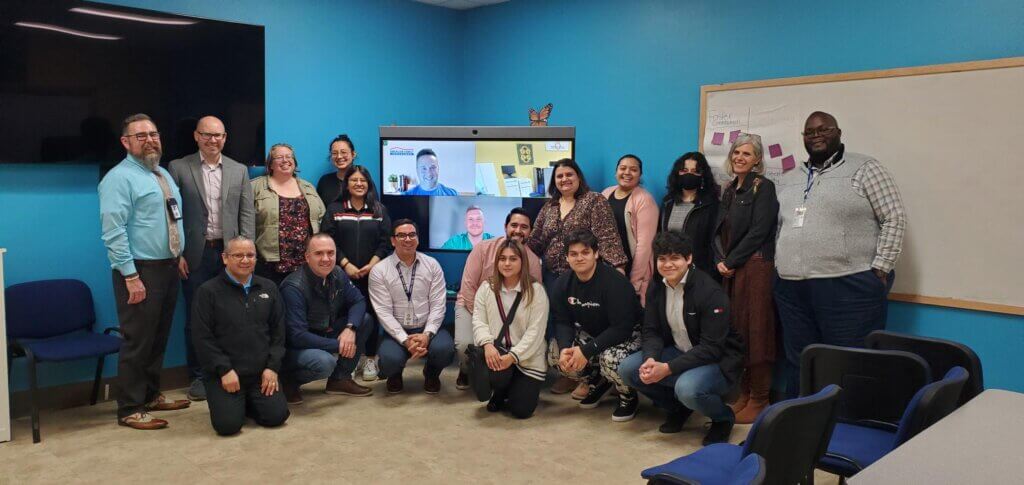As we commemorate Labor Day—a look at Latino millennials in the workforce
By Karla Bachmann, Program Manager, Workforce Development
Latino millennials are an increasingly important part of the American workforce. In the first quarter of 2015, according to Pew Research, there were 53.5 million millennials in the labor force, and more than 20% were Latino. That percentage is expected to grow exponentially.

While we have seen a marked increase in high school and college graduation rates among Hispanic youth, both important determinants of future employment, millennial Latinos continue to be underemployed—which affects their perception of future economic stability and prosperity. According to recent surveys, while young Latinos agree that the economy has improved, many are concerned about the weak labor market and career mobility opportunities.
Those fears are based on real numbers: Latinos between 17–20 years of age who have a high school diploma have an underemployment rate of 41.9%, while those between 21–24 years of age with a bachelor’s degree have a 16.3% underemployment rate. Many of these individuals are either employed in part-time jobs, unemployed, or have given up looking for work. Individuals who lack post-secondary education end up in low-skill, low-wage jobs that pay at or near minimum-wage levels. Many individuals work two or three jobs to support their families and have little opportunity to enter into jobs that promise upward mobility.
 Programs like those that NCLR and its Affiliate organizations offer, in partnership with corporations looking for a trained workforce, are critical in helping to bridge the employment gap. One of those programs is a bank teller training developed with the financial support of Wells Fargo, piloted with three NCLR Affiliates: Association House of Chicago; El Barrio, in Cleveland; and Youth Development, Inc. in Albuquerque. The training prepares Latino youth for jobs in the banking and financial sector that lead to financial and career advancement. By providing Latino youth with meaningful vocational training that builds on their existing skills, NCLR and its Affiliates can help Latino youth be more gainfully employed and on a career pathway to economic advancement. NCLR projects that by exposing Latino youth to careers in the financial sector, they and their families are more likely to be financially literate, less prone to use predatory financial products, and engaged in asset building.
Programs like those that NCLR and its Affiliate organizations offer, in partnership with corporations looking for a trained workforce, are critical in helping to bridge the employment gap. One of those programs is a bank teller training developed with the financial support of Wells Fargo, piloted with three NCLR Affiliates: Association House of Chicago; El Barrio, in Cleveland; and Youth Development, Inc. in Albuquerque. The training prepares Latino youth for jobs in the banking and financial sector that lead to financial and career advancement. By providing Latino youth with meaningful vocational training that builds on their existing skills, NCLR and its Affiliates can help Latino youth be more gainfully employed and on a career pathway to economic advancement. NCLR projects that by exposing Latino youth to careers in the financial sector, they and their families are more likely to be financially literate, less prone to use predatory financial products, and engaged in asset building.
The future of America’s workforce is clearly tied to the success of Latino millennials, and today, as we commemorate Labor Day, we highlight the important work being done and the work ahead to ensure that this critical sector of America’s labor force is set on a path to success.



